Cars and other types of vehicles aren’t just mere modes of transport. They are also responsible for keeping us safe whenever we decide to drive and go somewhere. That’s why manufacturers take years before they can release a single vehicle to the market. This is also why they immediately initiate a recall whenever there are possible issues with their products.
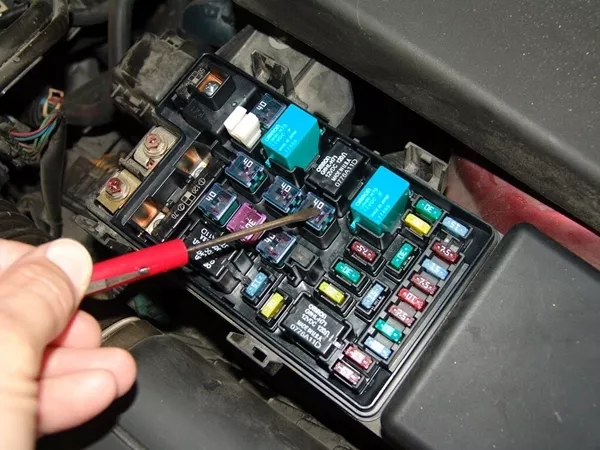
One of these important parts that we’re talking about is the fuse
As much as most manufacturers want to make their product features as simple and less overwhelming as possible, there are important pieces that can’t be missed. These are usually the parts that are concerned with safety, functionality, and performance.
One of these important parts that we’re talking about is the fuse. But what is a fuse? What does it look like and what can it do for you? Is it really that important? Find out for yourself in this article from Philkotse.com:
1. What is a fuse?
Fuses are generally recognized as “sacrificial devices,” designed to fail safely so that the wiring in your car is saved from potential damage. Fuses are safely embedded in the different parts of the electric components of your car. This includes the cigarette lighter socket
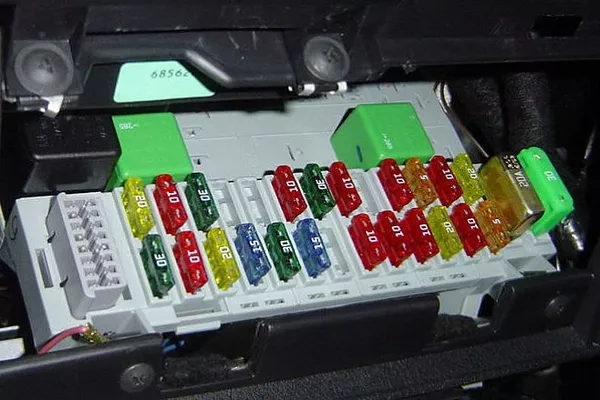
Fuses are generally recognized as “sacrificial devices.”
Cigarette lighter fuses can blow up from time to time, but if your car’s cigarette lighter socket’s fuse keeps blowing, there may be an underlying issue. This needs to be addressed immediately before it could cause even more problems in the future.
In most cases, the root cause of the problem can only come from one (or more) of the three elements. These are the cigarette lighter itself, the wiring of the cigarette lighter socket, and the device that you are trying to plug into it.
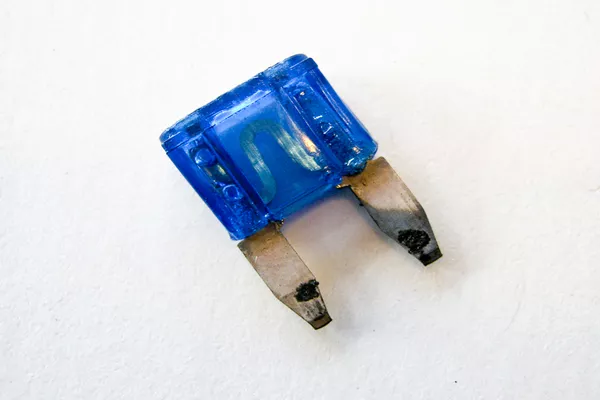
Cigarette lighter fuses can blow up from time to time
Note: There’s only one way to know which of these elements are defective. You have to go through them one by one and see which doesn’t work. But before that, you need to be careful when it comes to replacing your current fuse.
If you throw out your blown fuse, do not try to replace it with one that has a higher amperage. You could cause an even bigger problem than the one at hand. Replacing the current fuse with one that has higher amperage could cause melted wires, damage to the fuse box, and even start a fire.
>>> Check out: [Philkotse tips] Swapping that cigarette lighter with USB ports.
2. How does a fuse work?
Though they have changed over the years, a lot of these devices are still made up of two parts. These are the plastic or metal housing and the socket itself.
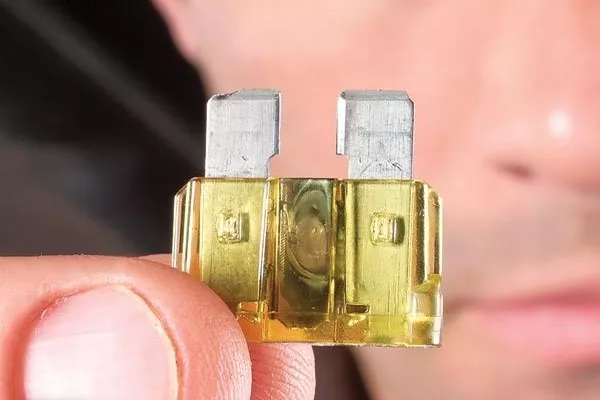
A lot of these devices are still made up of two parts, the plastic or metal housing and the socket itself
The socket is responsible for connecting the unit to both the ground and the power. The housing holds the coiled metal strip. Most of the models on the market have a grounded inner socket, along with a pin-like object in the middle. This pin is connected to your car’s fused power source. Whenever you insert your lighter into its socket, the current goes along the coiled metal strip. This heats up and lets you use it as a lighter, in the case of your car’s cigarette lighter.
Regular cigarette lighters are expected to suck out roughly 10 amps. Most lighter circuits, however, usually have 15- or 10-amp fuses. This lets you plug in various other devices other than just your cigarette lighter. You can even plug in electronics and phone chargers that suck up less than 15 amps. But this still depends on the specifics of your car.
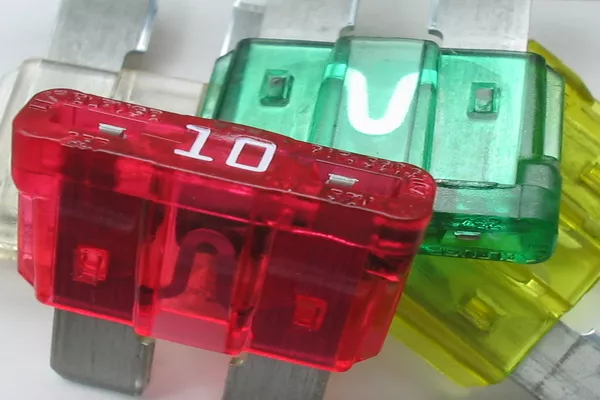
Fuses are basically made of plastic and metal
12V power adapters and electronic devices can be powered by a cigarette lighter socket. If your vehicle has a dedicated 12V accessory socket, that’s even better. If your vehicle has one or more 12V accessory socket that keeps blowing then the same diagnostic procedure can be performed.
>>> Recommended articles:
- 5 must-know tips if you want to avoid buying fake car parts.
- Top 3 Tips on Getting the Best Deals on Car Accessories in Banawe Street.
3. Why does my cigarette lighter fuse keep blowing?
The main reason why all fuses blow is if the circuits suck out more amperage than they can handle. If your lighter fuse is capped at 15 amps, drawing more than 15 amps will blow it out. Of course, you can replace the blown fuse with another 15-amp fuse. But if the flowing amp is still higher than 15 amps, expect the same event to happen again.
4. What you shouldn’t do
It would only be normal to assume that a fuse with a higher amperage will be able to solve this problem. But this is actually a very dangerous thing to do.
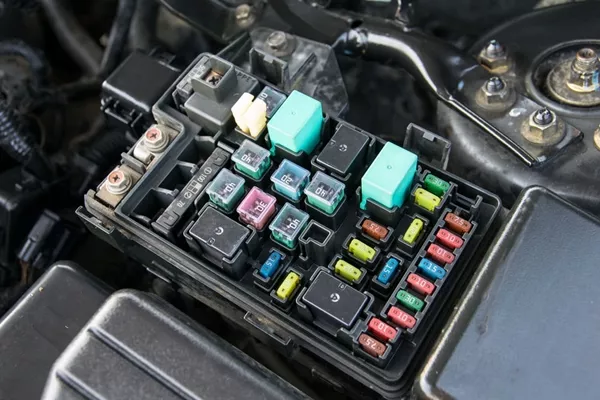
It would only be normal to assume that a fuse with a higher amperage will be able to solve this problem
While we can make assumptions as to the capabilities of the cigarette lighter’s circuit, there is no guarantee that it can actually handle more than 15 amps. Plus, if there is some kind of short happening in your car’s circuit, a larger fuse may heat up the wiring. This can cause the melting of the components and even fire.
5. Diagnosing your cigarette lighter socket
Inspect for foreign objects
There are tons of reasons for your lighter fuse to blow out repeatedly. One of the common reasons is having a foreign object stuck in the socket. The cigarette lighter socket in your car is designed to fit the entire metal body of the cylinder. Since the pin is kept hot, it becomes terribly easy to short.
There are vehicles that come with change-holders close to the cigarette lighter socket. This can be dangerous especially if a coin were to fall into the fuse box. Other metal elements like paper clips and other objects can also result in a short circuit.
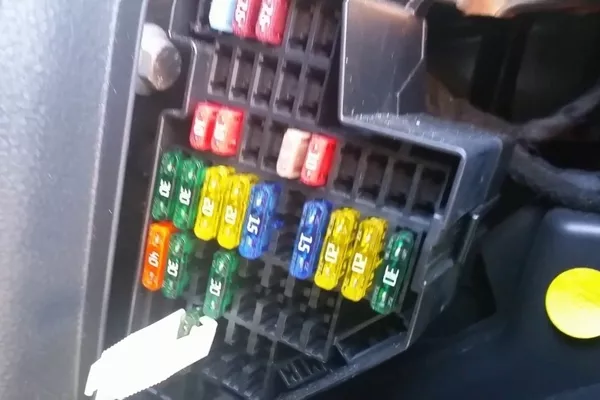
Other metal elements like paper clips and other objects can also result in a short circuit
>>> Read more: Tips for buying replacement car parts.
Check the device you want to plug
The amount of current that you can pull from a 12V socket (cigarette lighter socket) is very limited. If you’re plugging a device that requires more amperage than what it can provide, you can expect your fuse to blow.
Cigarette lighters typically utilize 15 amp fuses. Still, you can always check your fuse box for accuracy. Then, check the device you want to plug in and take note of the amperage it requires. Phones and other handheld devices can usually be plugged in safely. But one can never be too careful when it comes to bigger devices.
Recent posts
- Car maintenance: 5 signs of automatic transmission problems Aug 17, 2022
- Car maintenance tips: How to inspect and replace serpentine belts Feb 19, 2021
- Car maintenance: 4 steps to remove interior scuff marks Aug 17, 2022
- Car maintenance: How to check the engine's good coolant level Nov 30, 2022
- Car maintenance: Common ways for DIY dent removal - Fact or fiction? Aug 17, 2022












